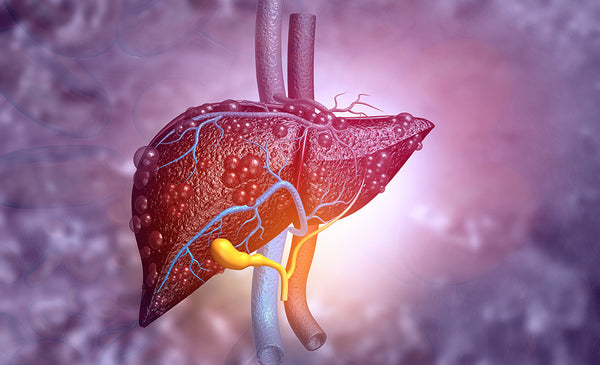
Magnesium: What’s The Best Type For Your Symptoms?
Other more popular vitamins and minerals usually take the limelight when it comes to the topic of supplementation. However, it pays to learn about the benefits of magnesium, an often overlooked mineral that greatly helps reduce symptoms associated with common issues such as fatigue, chronic pain, and insomnia. Studies have also shown that magnesium can provide protection against chronic diseases, particularly those associated with stress and ageing.
Facts about magnesium
Magnesium is an abundant mineral that is naturally present in plant and animal foods as well as in a wide range of food and beverage products. Natural foods rich in magnesium include green leafy vegetables, whole grains, legumes, nuts and seeds. Foods packed with dietary fibre are also a good source of magnesium. Additionally, fortified foods such as breakfast cereals contain significant levels of the mineral. However, certain types of processing and refining can substantially lower the magnesium content of some food products.
Magnesium is also available as a dietary supplement and comes in many different forms. It is also found in some medications, particularly antacids and laxatives.
The role of magnesium
Magnesium is primarily essential for enzyme activity in the human body. It is a cofactor in over 300 enzyme systems that regulate various biochemical reactions such as muscle and nerve function, protein synthesis, blood glucose management, and blood pressure control.
Magnesium is also necessary for energy production and plays a significant role in the synthesis of DNA, RNA and the antioxidant glutathione. It also helps actively transport calcium and potassium ions across cell membranes, which is vital to normal heart rhythm, muscle contraction, and nerve impulse conduction.
Magnesium contributes to structural bone development and helps increase calcium absorption. A deficiency in magnesium undermines bone-building and causes calcium to deposit in soft tissue instead of the bones. Where there is magnesium deficiency, a deficiency in calcium also develops even with adequate calcium supplementation.
To sum up, these are the main actions of magnesium in the human body:
- nerve conduction
- regulation of vascular tone
- muscle activity
- amino acid and protein synthesis
- DNA synthesis and degradation
- immune function
- natural calcium antagonist
Common symptoms and conditions associated with magnesium deficiency include:
- Stress, tension and anxiety
- Muscle aches, cramps, spasms, twitches, tingling and numbness
- Fatigue and weakness
- Loss of appetite, nausea and vomiting
- Migraines
- Abnormal heart rhythm
- Hypertension
- Stroke
- Osteoporosis
- Mineral homeostasis disruption of calcium and potassium
It’s also worth mentioning that alcohol and pharmaceutical medication use can deplete your magnesium stores. Individuals with gastrointestinal conditions such as chronic diarrhoea, gluten sensitivity, colitis, Crohn's disease or Celiac's disease may also experience magnesium deficiency over time as absorption of this mineral in the small intestine is limited.
Different forms of magnesium
Magnesium supplements are made available in the form of compounds. To maintain the mineral in a stable state suitable for human consumption, the magnesium ion (Mg2+) is combined with a ‘salt’, acid, or amino acid chelate. This explains why you’ll come across different types of magnesium supplements in the market.
Magnesium Aspartate
This form of magnesium is found in many bodybuilding powders and supplements. It’s a combination of both the magnesium molecule and the amino acid aspartate. Aspartate alone can be an excitatory neurotransmitter and high doses may cause neuronal damage (i.e. it’s excitotoxic). Magnesium aspartate is a very cheap filler form of magnesium and should be avoided by those with magnesium deficiencies.
Magnesium Carbonate
Beyond its role in the treatment or prevention of magnesium deficiency, magnesium carbonate carries with it a wide range of medicinal properties. It’s often used as an antacid and contains approximately 45 % magnesium. Consult with a health professional first before using magnesium carbonate to treat or prevent a condition.
Magnesium Chelate
Magnesium chelate simply refers to magnesium that has been bound to an amino acid so the body can better absorb it. ‘Chelated’ mineral supplements are often touted for their improved absorption.
Magnesium Chloride
Magnesium chloride contains only 12% elemental magnesium but is highly absorbed across a wide range of pH levels. It helps to improve the digestive process, lower blood sugar levels, and promote better heart and bone health. Magnesium chloride also helps with mental and physical relaxation and promotes better sleep. It is also believed to lower your risk of developing migraines.
Magnesium chloride powder has an extremely bitter taste – this is why manufacturers will add sugar to make it taste better. If you do opt for magnesium chloride, make sure to avoid brands that contain contaminants or added sweeteners. Opt for those sweetened with stevia instead. This is often the form of magnesium used topically and is great for people who tend not to absorb nutrients well.
Magnesium Lactate
If you have a sensitive gut and want to supplement with magnesium, magnesium lactate is a good option. Besides treating magnesium deficiency, this form of magnesium is also used to treat and manage digestive issues such as stomach upset, indigestion, or heartburn. However, those with kidney-related problems should avoid magnesium lactate.
Magnesium Citrate
Magnesium citrate is the cheapest and most popular magnesium supplement. It is easily absorbed by the body and helps with relaxation, anxiety, and muscle cramping. This form of magnesium also has a mild laxative effect and can aid with constipation. It is also one of the most well-absorbed forms of magnesium.
Magnesium Glycinate
Magnesium glycinate is one of the most absorbable forms of magnesium supplements you can take. It’s a combination of both magnesium and the amino acid glycine. Since the body can easily transport glycine across the intestinal wall, magnesium glycinate doesn’t usually cause loose stools.
Magnesium glycinate is beneficial for muscle aches and chronic pain relief. It also helps to calm the nervous system and aids with symptoms associated with insomnia, anxiety and concentration issues. It is the better form of magnesium to use long-term because it is mild and well absorbed.
Magnesium Hydroxide
Magnesium hydroxide is primarily used as a laxative to treat occasional constipation and bowel irregularity. It also works as an antacid to provide relief from a sour stomach, indigestion, or heartburn. Magnesium hydroxide is the main ingredient in Milk of Magnesia, a popular OTC medication for constipation relief. Most brands contain sodium hypochlorite (essentially diluted bleach) along with artificial ingredients to make it taste better.
Magnesium Malate
Magnesium malate is a combination of magnesium and malic acid, a naturally occurring substance that aids in energy production during both aerobic and anaerobic activities. Besides soothing muscle pain by relaxing tense areas of the body, this form of magnesium is recommended for women suffering from fibromyalgia, PMS and migraines. Best not to take this form of magnesium late in the day, as it may interfere with sleep.
Magnesium Orotate
Magnesium orotate is a combination of the mineral magnesium and orotic acid. Besides treating magnesium deficiency, most people use this form of magnesium for its orotates which enhance RNA and DNA production and improve the regeneration of heart cells. In effect, magnesium orotate improves cardiovascular function for better heart health. It is also very popular among athletes for its ability to enhance performance and endurance.
Magnesium Oxide
Magnesium oxide is a cheap form of magnesium often prescribes in cases of chronic constipation. Its poor absorption rate (about 4%) is what causes the loose stools. Magnesium oxide is also used as an antacid to treat a sour stomach and provide relief from heartburn. Take note, however, that the short-term laxative effect of magnesium oxide not only prevents your small intestines from absorbing beneficial nutrients; it can also remove beneficial bacteria. This form of magnesium is not specific for raising magnesium levels.
Magnesium Sulfate
Magnesium sulfate is the form found in Epsom salt and is easily absorbed through the skin. It also has mild laxative properties and is used to provide relief from occasional constipation by increasing water in the intestines. This form of magnesium is also is best used to treat conditions such as insomnia, muscle pain and twitches, as well as tension and stress.
Magnesium sulfate is also used intravenously (by injection or drip) to address pediatric acute nephritis or prevent seizures associated with eclampsia or toxaemia of pregnancy.
Magnesium Taurate
Magnesium taurate is a combination of the mineral magnesium and the amino acid taurine. When taken together, magnesium and taurine help stabilize cell membranes to protect against abnormal heart patterns and cellular damage caused by heart attacks. In essence, it is recommended for improved cardiovascular health. Magnesium taurate also helps calm the nervous system and assists in blood pressure regulation.
Magnesium Threonate
When it comes to brain health, magnesium threonate is tops. Among all forms of magnesium, magnesium threonate has the unique ability to permeate the brain and enhance receptors involved in memory and learning processes. Because the brain quickly absorbs magnesium threonate, it is excellent for brain and nervous system health. Studies have also shown that magnesium threonate helps with ageing and may benefit Alzheimer’s patients.
A final word on magnesium
Allow me to point out that magnesium is best not taken with calcium or iron supplements at the same time. These minerals compete for the same binding sites and taking them all together can prevent optimum absorption. Magnesium can also interact with some medications so it’s advisable to consult with your doctor or health professional before supplementing with magnesium.
As with all other vitamins and minerals, eating a whole foods diet will give you the perfect ratio of nutrients and provide many essential benefits for your body the natural way. There is a big difference between quality absorbable supplements and cheap synthetic forms. Magnesium is a cofactor in many different body processes and with the correct form, you can experience its great benefits.
REFERENCES
Ying Huang, Xian Huang, Ling Zhang, Fang Han, Ke-Liang Pang, Xue Li, Jian-Ying Shen. Magnesium boosts the memory restorative effect of environmental enrichment in Alzheimer's disease mice. CNS Neuroscience & Therapeutics. 2018 Jan;24(1):70-79.
https://pubmed.ncbi.nlm.nih.gov/29125684/
Emily K. Tarleton, Benjamin Littenberg, Charles D. MacLean, Amanda Kennedy, Christopher Daley. Role of magnesium supplementation in the treatment of depression: A randomized clinical trial. PLoS One. 2017 Jun 27;12(6):e0180067.
https://www.ncbi.nlm.nih.gov/pmc/articles/PMC5487054/pdf/pone.0180067.pdf





















